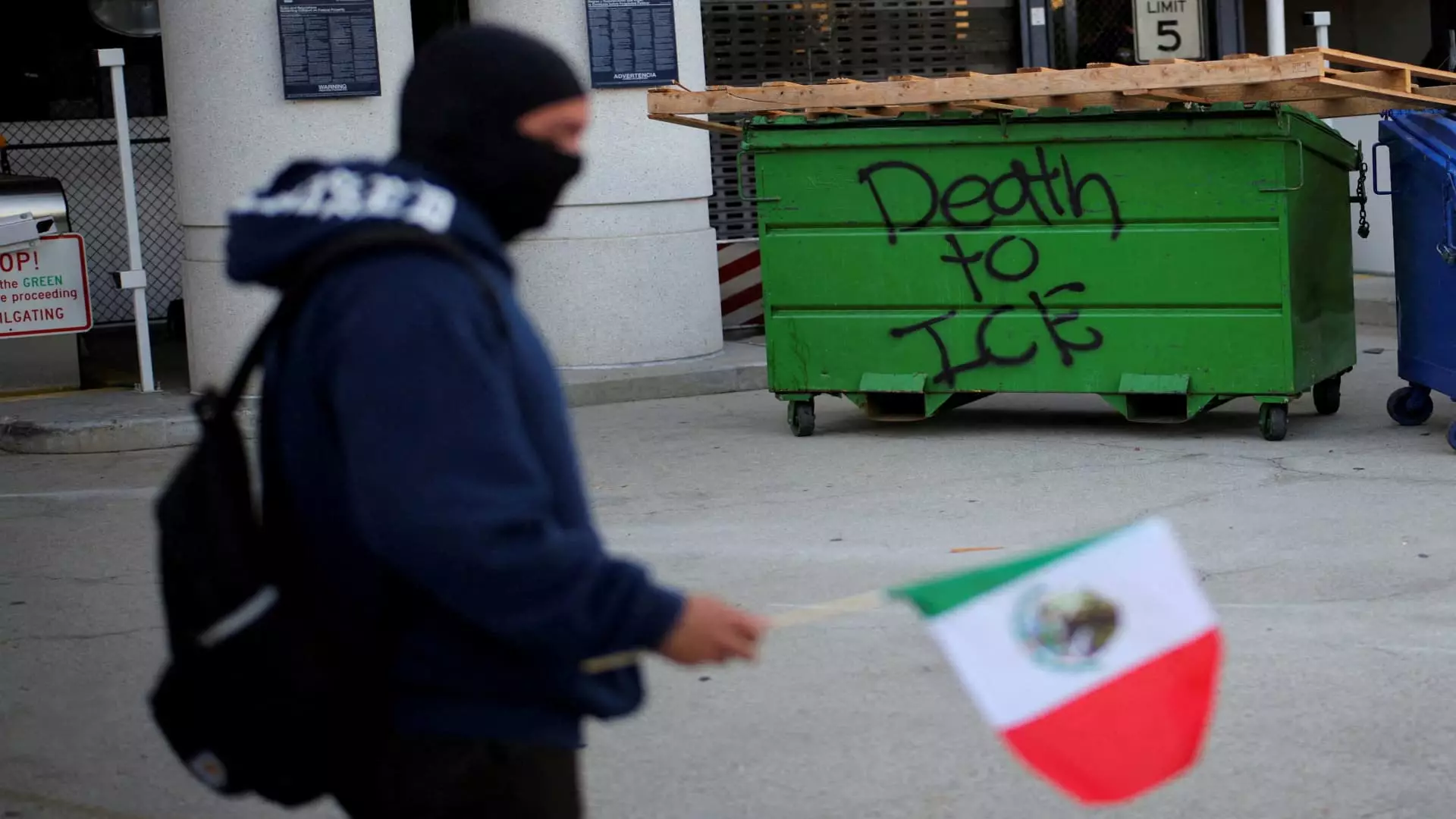In a city renowned for its cultural diversity, the protests sparked by recent immigration raids have illuminated the chasm between the federal government’s draconian policies and the values of the communities they threaten. Over the weekend, Los Angeles became a battleground as federal agents clashed with demonstrators responding to Immigration and Customs Enforcement (ICE) operations that many see as an outright attack on their fundamental rights. With more than 44 arrests already made in sweeping raids, the federal administration led by Donald Trump seemed poised to reset the parameters of lawful protest itself, reducing dissent to a mere irritation worthy of a federal crackdown.
At the heart of the uproar was Stephen Miller, a senior White House aide infamous for his hardline stance on immigration. Labeling the protests an “insurrection,” his comments ignited an already volatile situation. When federal agents wield gas masks and prepare for confrontation, what message does that send to a population already wrestling with fear and uncertainty? The juxtaposition of peaceful demonstrators, some masking their mouths in active resistance, against heavily armed federal operatives paints a stark picture of a deeply fractured society.
Violence and Rhetoric: A Dangerous Game
The escalating narrative surrounding these events extends beyond mere clashes; it approaches a fully loaded cannon: the rhetoric of violence from both sides. The Department of Homeland Security’s characterization of protestors as “rioters” may be an oversimplification of a narrative fueled by fear and frustration. While true that some individuals crossed the line into illegality—vandalizing property and challenging law enforcement agents—the essence of the protests stems from a place of desperation and anguish. These activists are standing against policies that threaten not only their livelihoods but also their very existence in this country.
Government officials have weaponized language, labeling dissenters as insurrectionists while simultaneously ignoring the plight of those affected by raids. The reality, however, reveals that fear permeates the fabric of communities where immigrants reside; families have been shattered, and individuals have been torn from their homes in the dead of night. The oversimplification of complex social dynamics as merely lawlessness is a dangerous slope that diminishes the tangible suffering experienced by countless lives for seemly arbitrary law enforcement objectives.
The Role of Local Leadership
Los Angeles Mayor Karen Bass has become a vocal opponent to the aggressive immigration crackdowns championed by the Trump administration. Her passionate denouncement of ICE operations and the ensuing chaos within the city demonstrate a pivotal shift in municipal leadership that challenges federal authority. Bass’s statement reflects an understanding that these raids do not simply disrupt routine legal proceedings; they galvanize communities, igniting a collective resolve against fear-mongering tactics deployed by Washington.
Yet, can local leaders do enough to counteract the flow of federal mandates? The LAPD’s lack of direct involvement in immigration enforcement may signify a growing rift between local and federal policies, but it also raises questions about effectiveness. Even amidst the outcry, can local governance maintain a semblance of safety while being stripped of any real power to influence federal law?
Injustice Breeds Resistance; A Bureaucracy to Challenge
Amidst the chaos and confrontation, the very essence of democracy feels at stake. Resistance emerges, fueled by a groundswell of awareness and a collective outcry against injustices that continue to shadow immigrant communities. The backlash against ICE’s operations highlights a fundamental truth: when marginalized populations feel threatened, their voices will (and must) rise against oppressive systems.
Federal authorities may brand this resistance as violence, but to those in the trenches it is nothing less than a fight for dignity. As government narratives weave tales of insurrection, the heart of the struggle — a quest for humane treatment, compassion, and understanding — has turned the noise of federal rebuke into a powerful refrain for generations of immigrants who have called America home. In this distorted tableau of safety versus freedom, the stakes are high, urging us to reconsider not just how we enforce laws, but at what cost to our human dignity.

Leave a Reply